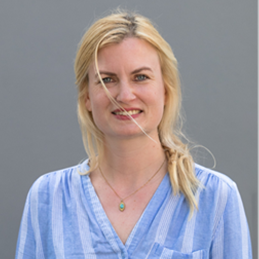Uni60+: Zwei Klicks voraus – Sicher durch den digitalen Alltag
En ligne
Multisensory experiences have been described as a crucial scaffold for learning.
In this talk I will present different experimental designs to investigate how multisensory cues are processed in children with and without sensory impairment: I start this journey by introducing a multiple object tracking task to measure attentional control in children 6 to 10 years old. During tracking, auditory, visual and audio-visual cues are presented. Our results indicate that as children get older, they increasingly incorporate sensory cues into their tracking. In contrast to visual cues, auditory cues tend to distract from the task, regardless of whether the task load is high or low. We showed that autistic children did not integrate sensory cue information during object tracking compared to non-autistic children.
More recently, we created a multisensory device together with visually impaired and blind children to make Braille learning experiences more fun and engaging. Letter patterns were conveyed to the user by sequentially vibrating individual buttons and playing corresponding audio tones or both auditory-haptic information. Results showed that most participants preferred the auditory-haptic modality, though preferences varied between groups: blind children favoured auditory-haptic and auditory modalities, while visually impaired children also liked the haptic modality. These preferences may relate to their sensory sensitivity profiles and autism diagnoses.
We discuss how enriched multisensory environments benefit children with and without sensory impairments and aim to extend these approaches to children with multiple impairments.

Julia Föcker is a Senior Lecturer at the College of Health and Science, School of Psychology, Sports Science and Wellbeing, University of Lincoln, UK.